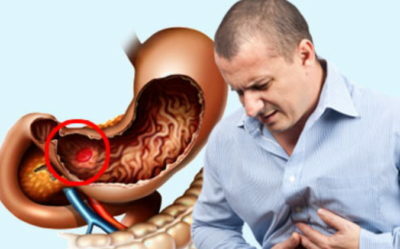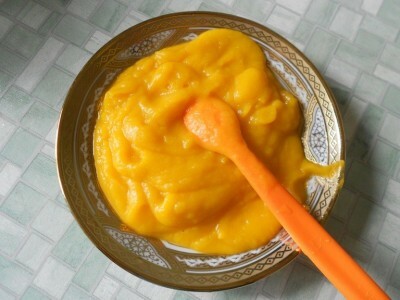1 Classification of the disease
Classification of colitis is developed not only according to the type of disease, but also according to the ICD-10 code. Everything depends on the severity of the disease and its characteristics. Each type is distinguished by a clinical picture and causes different reactions to therapeutic intervention.

Recommended to read
- Diet for colitis of bowel
- Code for ICD 10 chronic gastritis
- Ulcerative colitis symptoms
- Effective agent for gastritis and stomach ulcer
First of all, the disease can be acute or chronic. In acute form, the symptomatology is quite bright. In this case, inflammatory processes can occur not only in the area of the thick intestine, but also affect the stomach and the small intestine. As a result, the patient develops a complex of signs of gastroenterocolitis. When the chronic form of the disease symptoms go away, but the disease periodically exacerbated.
The etiology is divided into the following types:
- Ulcerous. It is a disease that does not have an exact etiology. It can develop because of a hereditary factor, infection or autoimmune processes. All forms of ulcerative colitis, according to the ICD-10 classification, have the K51 code. This includes the mucosal type proctocitis, colon pseudopolyposis, rectosigmoiditis, proctitis, ileocolitis, enterocolitis, unspecified disease and other forms with manifest ulcers. Enterocolitis ulcerative type in chronic form has the code K51.0.For the ileocolitis in the chronic ulcerative form, the numbering of K51.1 is established. Proctitis in chronic form with ulcers differs in the number K51.2.Recursigmoiditis in a chronic form with ulcers identified is designated as K51.3.Numbering K51.4 is established for pseudopolyposis. If a mucosal type protokolitis is found, then this is K51.5.Other ulcerative colitis are indicated by K51.8.If this is a non-specified form, then the number K51.9 is indicated.
- Infectious. Such colitis is caused by a pathogenic microflora, which is specific, opportunistic and standard. The international organization has established for this form of illness number K52.2.In addition, under this number, colitis and gastroenteritis of alimentary and allergic types are indicated.
- Ischemic. In this case, the ailment develops due to the occlusion of the branch of the abdominal aorta. It is she who ensures blood circulation in the thick part of the intestine. According to the classification, this disease has the number K52.8.In the same line included refined non-infectious forms of colitis and gastroenteritis, other than toxic and radiation. As for unspecified forms of colitis and gastroenteritis of non-infectious nature, the code K52.9, according to ICD-10, is established.
- Toxic. This form of the disease is caused by poisoning with poisons, drugs or other means. According to ICD-10, the group K52.1 is established. But this includes not only colitis in this form, but also gastroenteritis.
- Radiation. This form of colitis occurs with radiation sickness in a chronic form. According to ICD-10, the number is K52.0.This also includes radiation gastroenteritis.
-
 IMPORTANT TO KNOW! Gastritis? Ulcer? To have a stomach ulcer not turned into cancer, drink a glass. ..Read the article & gt; & gt;
IMPORTANT TO KNOW! Gastritis? Ulcer? To have a stomach ulcer not turned into cancer, drink a glass. ..Read the article & gt; & gt;
There is another classification of this disease, depending on the location of the lesions. First, they release pancolitis, in which all parts of the large intestine are affected. Secondly, there is tiflit - inflammatory processes develop on the mucosa of the sigmoid-intestinal department. Thirdly, there is such a form as sigmoiditis, when inflammatory processes spread to the mucous membranes of the sigmoid-intestinal division. The last form is proctitis. In this case, inflammation develops only on the rectal mucosa. There are often situations when one patient develops several forms of a disease simultaneously, that is, not only on the large intestine, but in adjacent zones.
-
 Gastroenterologist. IMPORTANT: "I beg you, if you began to worry about abdominal pain, heartburn, nausea, do not in any way do gases. .."Read more & gt; & gt;
Gastroenterologist. IMPORTANT: "I beg you, if you began to worry about abdominal pain, heartburn, nausea, do not in any way do gases. .."Read more & gt; & gt;

2 Causes of
Disease Nonspecific ulcerative colitis and its other types in chronic form can be caused by various factors. For example, this may concern medicines. Usually, such an ailment is caused by antibiotics, laxatives and sulfonamides. Because of long-term use, they are absorbed into the intestinal walls, disrupt the microflora and cause inflammation.
Disturbances in nutrition can also contribute to this, for example: starvation, diets, overeating, fried and fatty, smoked foods, spirits. Colitis can be caused by occupational poisoning. This applies to people who work with arsenic, mercury and metal compounds.
In the elderly, NUK( ulcerative colitis) and other forms of chronic disease are often caused by intestinal atony. In addition, it is necessary to take into account the toxic substances that are released during the development of renal and hepatic insufficiency, as well as gout. Sometimes such an ailment is provoked by an allergic reaction to medications and foods. It is necessary to take into account the developmental defects of the intestine and its individual structures.
ADVICE FROM THE MAIN GASTROENTEROLOGIST
Korotov SV: "I can recommend only one remedy for the rapid treatment of Ulcer and Gastritis, which is now recommended by the Ministry of Health. .." Read testimonials & gt; & gt;
Often the disease develops after an abdominal injury, resulting in a violation of blood flow in this zone and damage to the walls of the intestine. This can happen not only after the injury, but also during surgery. The blood flow in the intestine can be disturbed due to the thrombosis of the blood vessels and the development of atherosclerosis in this area.
There are a number of conditions under which chronic colitis worsens:
- stresses and any disturbances;
- lack of fruits and vegetables in the diet;
- a low calorie diet;
- use of alcoholic beverages;
- weak immunity after a disease of an infectious nature.

All these factors can trigger an exacerbation.
3 Symptoms of the chronic form
Usually the symptoms of this disease are secondary. They manifest themselves against the background of other diseases that affect the digestive system: hepatitis, cholecystitis, pancreatitis, gastritis, etc.
During the exacerbation of chronic colitis, the patient constantly experiences pain that is blunt. Unpleasant sensations intensify during meals, during shaking or after stress. The chair changes - alternating diarrhea and constipation can alternate. Often there is rumbling and swelling in the abdomen. Sometimes there are tenesmus - these are false desires for defecation. From the rectum with stool, along with the feces, mucus can go out.

The person feels unpleasant bitterness in the oral cavity, especially in the morning. During the day, he quickly gets tired, feels weak, malaise. Often there is a belch. The patient is sick. Sleep is also broken.
All these symptoms are due to the fact that the thick intestine does not fulfill its functions and does not absorb useful substances - trace elements, vitamins, proteins. As a result, it affects the metabolic processes in the body. During the remission, symptoms are poorly expressed, and they quickly pass.
Complications occur with ulcerative and fibrous forms of the disease, when the pathology breaks the muscular layer of the organ.
For example, perforation of the ulcer may occur, when the fecal masses pass into the peritoneum. This leads to peritonitis. Gangrene may develop. This occurs with thrombosis of blood vessels. If the blood vessels are destroyed, then intestinal bleeding begins. In addition, the infection can enter the intestine and pass to other organs, which will cause sepsis, pyelonephritis, liver abscess and areas near it.
The code for chronic colitis varies depending on the type of disease that is indicated in ICD-10.Usually this concerns class K51 and K52 with further refinements depending on the form and type.
- 1 Classification of the disease
- 2 Causes of the appearance of
- 3 Disease Symptoms of the chronic form
Chronic colitis( ICD-10 indicates different codes depending on the specific disease) is a disease with prolonged inflammatory processes in the area of the large intestine. Symptoms of such an ailment are manifested only in half of patients who came to consult a gastroenterologist. According to statistics, in women this disease develops after about 20 years, and in men - after 40. Almost no patients in childhood.
Do you have gastritis?
GALINA SAVINA: "How easy is it to cure gastritis at home for 1 month. A proven method is to write down a recipe. ..!"Read more & gt; & gt;



